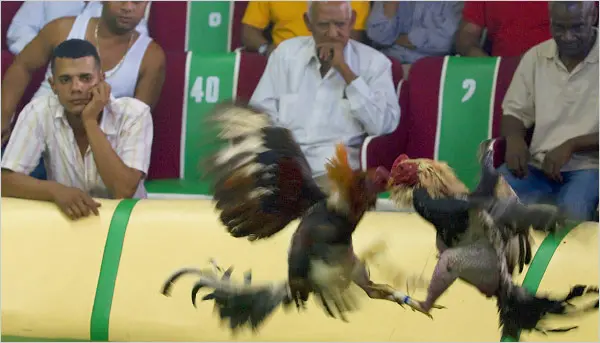While sabong enthusiasts argue that the Goperya is part of their cultural heritage and that the roosters are treated with care and respect, animal welfare advocates view it as a form of animal abuse. We will now take a closer look at the ethics of cockfighting and how to balance tradition and animal welfare.
What are the ethics?
The ethics of cockfighting is a complex issue that involves balancing tradition and cultural heritage with animal welfare concerns. While sabong may be deeply rooted in tradition, it is important to ensure that the welfare of the roosters involved in the sport is not compromised. This can be achieved through proper regulation and enforcement of animal welfare laws, as well as education and awareness campaigns to promote responsible cockfighting practices.
It is important to note that cockfighting is not just a sport, but also a way of life for many people. It is deeply ingrained in their culture and traditions, and is often associated with fiestas and other important celebrations. However, it is also important to recognize that times have changed and there is a growing concern for animal welfare.
To balance tradition and animal welfare, it is essential to regulate cockfighting properly. Governments must ensure that online sabong live is conducted in a humane manner, and that the roosters are not subjected to unnecessary suffering. This can include rules and regulations that require adequate care for the birds, including proper nutrition, housing, and veterinary care. It can also include the proper training of handlers and the imposition of penalties for those who violate animal welfare laws.
Education and awareness campaigns are also essential to promote responsible cockfighting practices. This can include education on proper breeding and training of roosters, as well as information on the importance of animal welfare. It can also involve promoting alternative forms of entertainment that do not involve animal cruelty.
Related: NFF’s Ethics Committee Hands Yusuf One-Year Ban, $5,000 Fine Over Bribery Incident
In addition, it is important to recognize that there are differences in the way cockfighting is conducted in different countries. In some countries, such as the Philippines, cockfighting is a regulated sport with strict rules and regulations in place to ensure the welfare of the roosters. In other countries, it is an underground activity that is conducted illegally and often involves illegal gambling and other criminal activities.
Ultimately, the ethics of cockfighting is a complex issue that requires a balanced approach. It is important to respect and understand the cultural and traditional aspects of cockfighting, while also ensuring that the welfare of the animals involved is not compromised. Proper regulation and enforcement of animal welfare laws, education and awareness campaigns, and responsible cockfighting practices are all essential in achieving this balance.
Thus, the ethics of cockfighting is a sensitive issue that requires careful consideration. While it may be deeply rooted in tradition and culture, it is important to ensure that the welfare of the animals involved is not compromised. Governments must enforce proper regulations and animal welfare laws, and education and awareness campaigns must promote responsible cockfighting practices. Balancing tradition and animal welfare is essential in ensuring that cockfighting can continue to be enjoyed by future generations in a humane and responsible manner.
Related articles
Cockfighting in Vietnam: Betting Online
From The Arena To Your Screen: Exploring The Fascination Behind Cockfighting Live Streams







